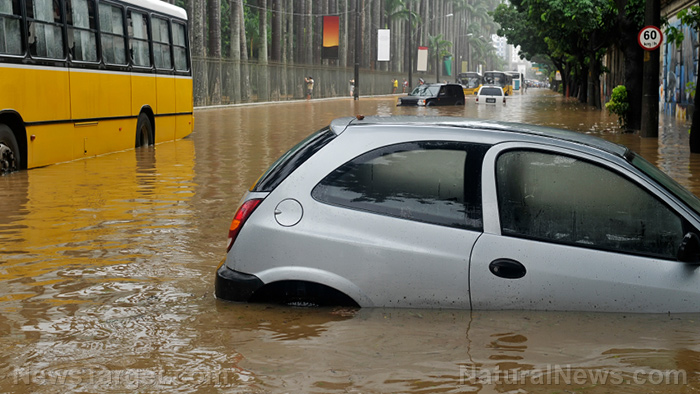
Advertisement
There’s an old expression that goes, “You can lead a horse to water but you can’t make him drink.”
I was reminded of that saying very often observing the situation before and after Hurricanes Harvey and Irma hit Texas and Florida, respectively. And I’m quite certain I’m not the only prepper who was. I’ll explain.
As reported by The New York Times, survivors of Irma on the island of St. Martin “spoke of a disintegration in law and order” as they “struggled in the face of severe food and water shortages” caused by storm damage.
“All the food is gone now,” said Jacques Charbonnier, a 63-year-old resident. “People are fighting in the streets for what is left.”
The paper also reported other predictable events following an apocalyptic event that destroyed 90 percent of buildings on some nearby islands, such as the breakdown of social order and the civil society. In addition to an absence of food and water, other basic services like electricity and telephone service are wiped out.
Then the Times reported this, which I found incredible:
As reports of increasing desperation continued to emerge from the region over the weekend, governments in Britain, France and the Netherlands, which oversee territories in the region, stepped up their response. They defended themselves against criticism that their reaction had been too slow, and insufficient. Both the French and Dutch governments said they were sending in extra troops to restore order, along with the aid that was being airlifted into the region [emphasis added].

For one, these are islands and they are located in the Caribbean, a region noted for warm water, sandy beaches, and great weather — until it turns severe, which happens often. Granted, Irma was an unusually large storm, but so what? When does it become anyone else’s responsibility to ensure you have enough emergency supplies to get by in the worst of times?
There are similar issues arising in the United States as well. Before the hurricanes struck, people flooded to stores and gas stations to stock up on supplies that they should have already had. Again, predictable.
I read an account where a family said they were “tailgating” up the Florida coast and sleeping in their vehicle off-and-on as they headed not so quickly out of state and north to Tennessee. They reported encountering empty gas stations, barren store shelves, and lack of water during the entire trip, at least the Florida portion of it.
Predictable.
The reports in St. Martin and the U.S. of societal breakdown and looting were also very predictable, which is why preppers will always ensure they have some means of self-defense. Even in the case of a massive weather-related natural disaster that has been seen coming for more than a week, there is still going to be a lag from the time the storm hits until the time increased aid and security arrive to bring peace and stability back to the affected areas. What do unarmed, unprotected people do in the meantime? That’s easy — they get victimized or killed. Because it does no good to prepare for disaster with extra food, water, camping, and survival gear if you can’t defend it and yourself. (Related: You need to know these 8 essential survival tips to prepare you for the next catastrophe.)
None of this is rocket science. In an emergency situation involving massive damage, there will be chaos and looting; there will be some degree of social breakdown; there will be death; there will be people taking advantage of the situation.
Even if all services are knocked out — phone, electricity, water — you must be prepared to shelter in place with enough food and water, and the ability to defend yourself, until the cavalry arrives. To see so many people so unprepared even though they live in a part of the world where violent weather is known to occur just makes me shake my head.
J.D. Heyes is a senior writer for NaturalNews.com and NewsTarget.com, as well as editor of The National Sentinel.
Sources include:
Submit a correction >>
This article may contain statements that reflect the opinion of the author
Advertisement
Advertisements















